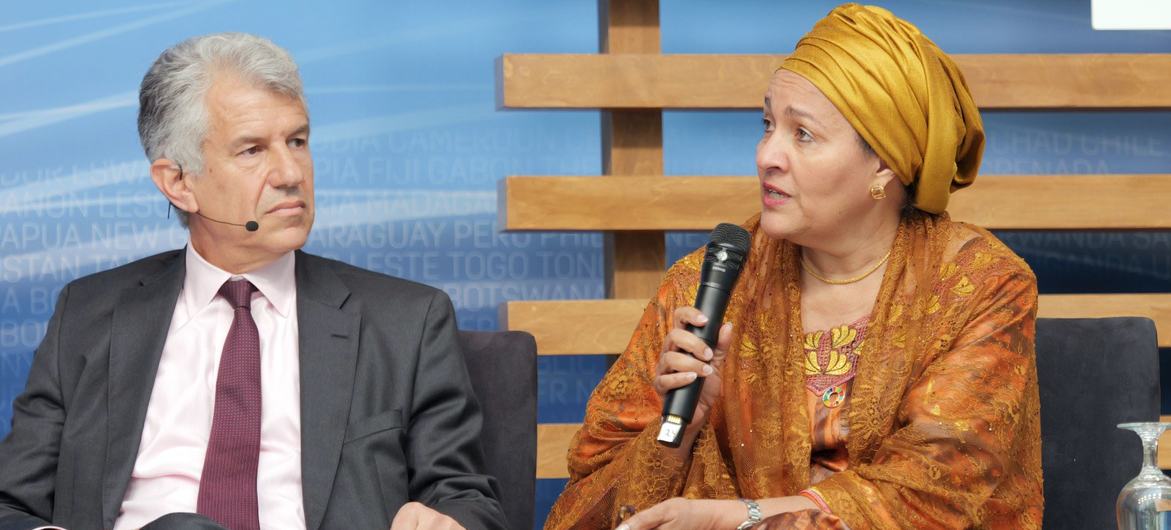
The Deputy Secretary-General of the United Nations, Amina Mohammed, has warned that the Sustainable Development Goals (SDGs) are at risk of slipping away due to cascading global crises, highlighting the need to reform the global financial system.
Speaking at a forum on reform during the Spring Meetings of the International Monetary Fund and the World Bank, Mohammed on Thursday called for a course correction now, as we approach the halfway point to achieving the SDGs by 2030.

Developing countries have been hit hard by soaring energy and food costs, the climate emergency, and the COVID-19 pandemic, putting them at greater risk of debt distress and undermining their ability to invest in recovery and sustainable development.
Mohammed stressed that reforms should address challenges in five inter-related areas, including reforming global economic governance, closing gaps in the sovereign debt architecture, and reshaping international public finance. Recent crises have also revealed the need to strengthen global financial safety and reset the rules of the banking and financial systems.
In recent years, developing countries have been hit hard by soaring energy and food costs, the climate emergency, and the COVID-19 pandemic. These crises have unfolded amidst rapidly tightening global financial conditions and rising borrowing costs, putting vulnerable countries at greater risk of debt distress and undermining their ability to invest in recovery and sustainable development.
Mohammed stressed that the global financial architecture is flawed and was designed for a world that no longer exists. She recalled that the UN secretary-general has proposed a global SDG Stimulus Plan of at least 500 billion U.S. dollars annually to scale-up affordable long-term financing for countries in need. This would include mobilizing official financing at scale, lowering the cost of borrowing, and providing contingency financing in times of crisis, she said.
However, Mohammed expressed concern that the international community is not finding common ground, and that the G20 in particular remains at an impasse. She warned that failing to listen to clear calls for change would be a mistake, leading to the decoupling of the global financial system and an unravelling of multilateralism at large.
Mohammed pointed to upcoming opportunities to build a coalition of like-minded leaders to drive an ambitious financing package for the SDGs and climate action, including the Bridgetown Initiative, a “Global Financing Pact” summit in June convened by French President Emmanuel Macron, and the SDG Summit and High-Level Dialogue on Financing at UN Headquarters in September.
She stressed that reforms should address challenges in five inter-related areas, starting with reforming global economic governance to broaden and strengthen the representation of developing countries in the governance of international institutions. She also called for closing gaps in the sovereign debt architecture, reshaping international public finance, strengthening global financial safety, and resetting the rules of the banking and financial systems.
Mohammed emphasized that most of these reforms are already being discussed by the international community, but it is now time to bring these disparate discussions together and build the political will required to transform these ambitions into reality. #


These are genuinely impressive ideas in about blogging.You have touched some pleasant things here. Any way keep up wrinting.